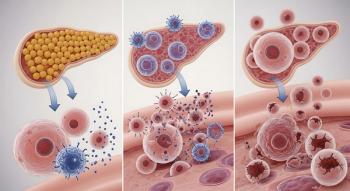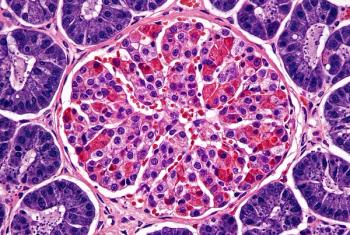
Farxiga Can be Safely Used by Adolescents with Type 1 Diabetes
Farxiga, along with insulin and monitoring for diabetic ketoacidosis, shows promise for kidney and glucose control in youth with Type 1 diabetes.
Farxiga (dapagliflozin) can improve kidney and metabolic outcomes in adolescents and young adults with Type 1 diabetes (T1D), according to a recent
Type 1 diabetes is an autoimmune disease where the immune system destroys insulin-producing beta cells in pancreatic islets. Insulin helps the body use glucose for energy, and glucagon is released when glucose levels become too low. About 2 million Americans have Type 1 diabetes.
Developed by AstraZeneca, Farxiga is approved for several indications, including to reduce the risk of heart failure in patients with Type 2 diabetes, to reduce the risk of chronic kidney disease, to improve glycemia control in those with Type 2 diabetes, and to reduce the risk of cardiovascular death in patients with heart failure. Farxiga is a
Researchers, led by Farid H. Mahmud, M.D., associate professor at the University of Toronto and associate scientist at the SickKids Research Institute, wanted to explore the use of Farxiga and its impact on glucose control and kidney disease in adolescents with Type 1 diabetes.
The study, known as ATTEMPT (Adolescent Type 1 Diabetes Treatment with SGLT2i for Hyperglycemia and Hyperfiltration Trial), was a 22-week, placebo-controlled trial involving 98 patients aged 12 to 21 years. It evaluated Farxiga (5 mg daily) as an adjunct to insulin therapy. The results suggest this class of drugs could play a future role in slowing early kidney damage in youth with Type 1 diabetes, a population traditionally underserved in chronic kidney disease (CKD) prevention research.
The trial’s primary outcome was the change in measured glomerular filtration rate (mGFR), a marker of kidney function. Participants treated with Farxiga experienced a statistically significant reduction in mGFR compared with those receiving placebo. The greatest effects were seen in patients with elevated baseline mGFR.
The study showed improvements in glucose control. Farxiga reduced hemoglobin A1c by 0.47%, and increased time in the target glucose range by 9%. These changes were achieved without raising the risk of hypoglycemia. Patients also experienced an average weight loss of 2.8 kg.
The study also included a risk mitigation protocol for diabetic ketoacidosis (DKA), a serious complication where the body is not able to use sugar for energy. This protocol included continuous ketone monitoring and education around insulin adjustment and carbohydrate intake. As a result, only one mild diabetic ketoacidosis event occurred in the Farxiga group, and overall adverse events, including urinary and genital infections, were similar between the treatment and placebo arms.
“Our findings showed that adolescents who received this combination therapy were able to improve many symptoms typically associated with insulin-managed Type 1 diabetes,” Mahmud said in a
Researchers suggest further research is needed to determine whether these short-term gains can be sustained and translated into long-term benefits. “The favorable kidney and metabolic effects, coupled with an acceptable safety profile when using contemporary DKA mitigation tools, warrant longer-term studies in youth with T1D,” the researchers wrote.
This study was funded by Breakthrough T1D and Canadian Institutes of Health Research Strategies for Patient-Oriented Research.
Newsletter
Get the latest industry news, event updates, and more from Managed healthcare Executive.























